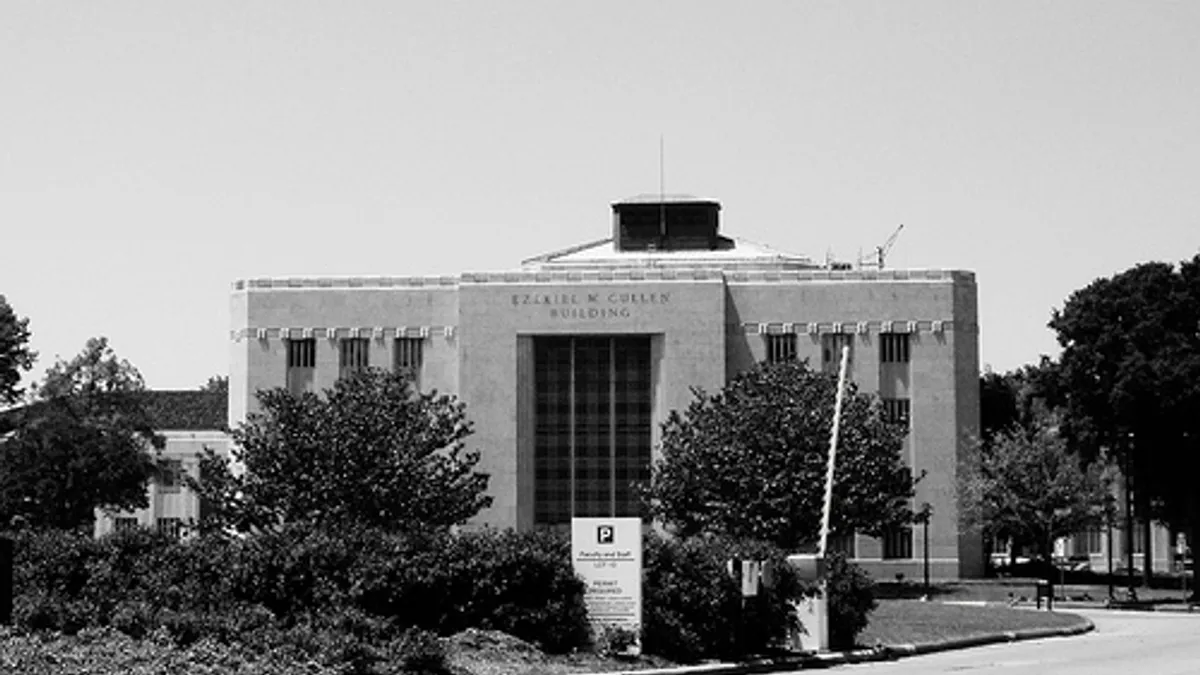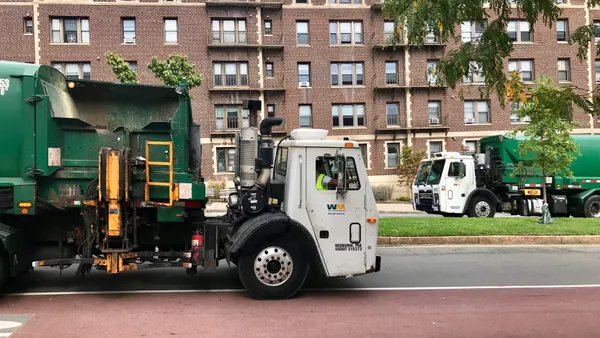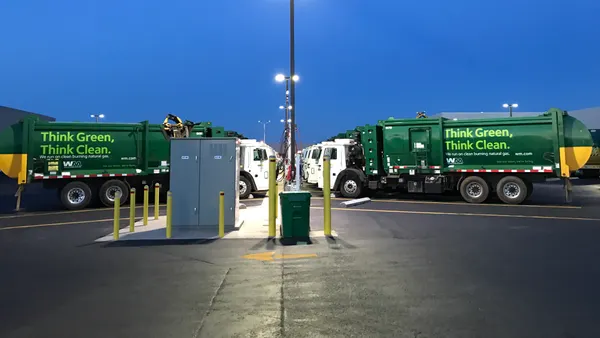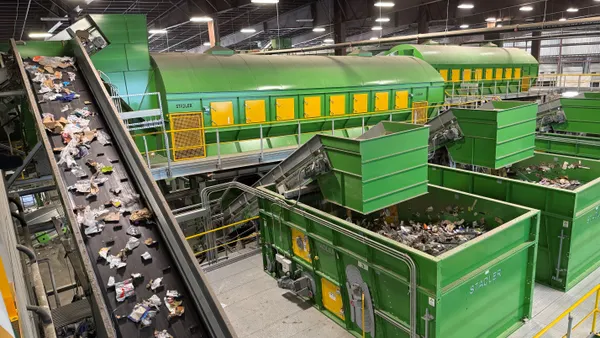Dive Brief:
-
The University of Houston placed 80 solar-powered smart bins across its campus, which will save money over the long-term and reduce the amount of time spent emptying trash cans that aren't full.
-
The Big Belly Solar bins serve as a trash compactor, powered by solar energy and capable of holding more than five times the amount of trash a traditional receptacle can; when it is full, an electronic signal is sent to alert the monitoring company that it needs to be emptied.
-
Although each bin costs $8,000, the university is certain it will save money, cutting back on transportation costs, labor expenses and fuel for the collection vehicle; the bins are expected to pay for themselves in under two years.
Dive Insight:
The university is looking to reduce its carbon footprint and purchased the new bin system based on a student's suggestion. Can waste and recycling issues be minimized due to interest from upcoming generations or will it make no difference?
With institutions and cities such as New York City and Syracuse implementing this new technology, will it become the wave of the future or just a passing trend?














